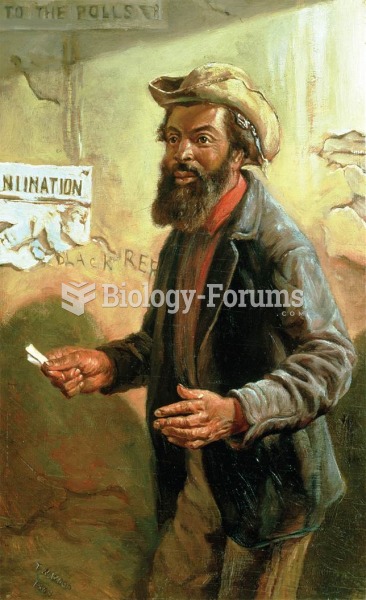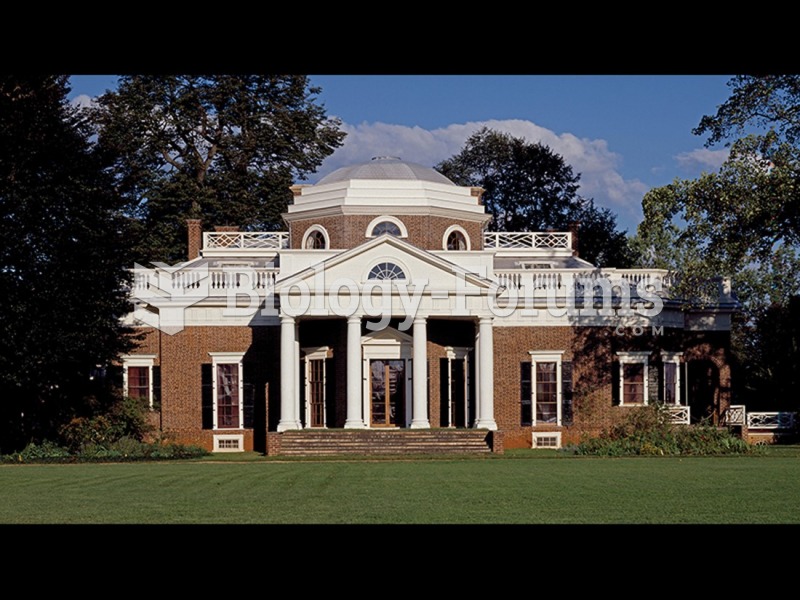The ideas of Locke and Rousseau and the attitudes of the new country helped Thomas Jefferson (1743-1826) and Benjamin Franklin (1706-1790) frame the views of American education to focus on freedom of expression and universal public education. Franklin was a Puritan whose first writings, Poor Richard's Almanac, became popular reading for colonists in the early 1800s. In addition to writing, Franklin was a scientist, inventor, philosopher, and educator. Franklin accepted Locke's philosophy of education but extended educational ideas to include all classes and those who had not been involved in the system thus far. As early as the 1760s, Franklin wrote that African Americans were equal to whites and appealed for better treatment of the Native Americans. Franklin supported the study of basic skills, classics, and religion and the development of high moral character, logical reasoning, integrity, and selfdiscipline. In an essay outlining the academy he had established, he called for a well-stocked library (complete with maps, scientific instruments, and diagrams); a frugal diet and regular physical exercise for the scholars; training in such practical skills as penmanship, drawing, accounting, and gardening; and courses in arithmetic, geometry, astronomy, English grammar, and modern foreign languages. Franklin's Puritan background influenced his ideas about school, and he wrote that spending too much time with the classics was wasteful and that the core of educational studies should be derived from what is useful and should meet the practical needs of the local communities. He viewed schools as a way to prepare young Americans for business or professions. One of Franklin's major contributions was his attempt to establish a permanent school, an academy, that would reflect stability. Imagine his disappointment when his academy eventually became a Latin grammar school, embodying many of the aristocratic and wasteful studies he abhorred. Thomas Jefferson was educated in America and demonstrated great personal abilities in languages and literature. He was also highly talented in music and the arts and was an inventor, farmer, scientist, and architect. He was a student of Locke and Rousseau and believed there should be a government-sponsored educational system so that all citizens could have equal educational opportunities. Jefferson envisioned schools as a way to produce future leaders for democratic society, and he believed it was the government's responsibility to provide a system of education. He founded the University of Virginia based on this belief and worked to propose a system of schooling that would provide the most basic schooling to all children in the state. His plan, which was presented to the state legislature but was not successful, provided three years of elementary school. He envisioned an educational system designed to preserve the democracy through well-educated, capable leaders and citizens. Schools were to create a populace that would advance the common interest and protect the young democracy from tyranny or dictatorship. The tone of this passage could best be described as
a. ironic.
b. admiring.
c. impassioned.
d. detached.
Question 2
The ideas of Locke and Rousseau and the attitudes of the new country helped Thomas Jefferson (1743-1826) and Benjamin Franklin (1706-1790) frame the views of American education to focus on freedom of expression and universal public education. Franklin was a Puritan whose first writings, Poor Richard's Almanac, became popular reading for colonists in the early 1800s. In addition to writing, Franklin was a scientist, inventor, philosopher, and educator. Franklin accepted Locke's philosophy of education but extended educational ideas to include all classes and those who had not been involved in the system thus far. As early as the 1760s, Franklin wrote that African Americans were equal to whites and appealed for better treatment of the Native Americans. Franklin supported the study of basic skills, classics, and religion and the development of high moral character, logical reasoning, integrity, and selfdiscipline. In an essay outlining the academy he had established, he called for a well-stocked library (complete with maps, scientific instruments, and diagrams); a frugal diet and regular physical exercise for the scholars; training in such practical skills as penmanship, drawing, accounting, and gardening; and courses in arithmetic, geometry, astronomy, English grammar, and modern foreign languages. Franklin's Puritan background influenced his ideas about school, and he wrote that spending too much time with the classics was wasteful and that the core of educational studies should be derived from what is useful and should meet the practical needs of the local communities. He viewed schools as a way to prepare young Americans for business or professions. One of Franklin's major contributions was his attempt to establish a permanent school, an academy, that would reflect stability. Imagine his disappointment when his academy eventually became a Latin grammar school, embodying many of the aristocratic and wasteful studies he abhorred. Thomas Jefferson was educated in America and demonstrated great personal abilities in languages and literature. He was also highly talented in music and the arts and was an inventor, farmer, scientist, and architect. He was a student of Locke and Rousseau and believed there should be a government-sponsored educational system so that all citizens could have equal educational opportunities. Jefferson envisioned schools as a way to produce future leaders for democratic society, and he believed it was the government's responsibility to provide a system of education. He founded the University of Virginia based on this belief and worked to propose a system of schooling that would provide the most basic schooling to all children in the state. His plan, which was presented to the state legislature but was not successful, provided three years of elementary school. He envisioned an educational system designed to preserve the democracy through well-educated, capable leaders and citizens. Schools were to create a populace that would advance the common interest and protect the young democracy from tyranny or dictatorship. The overall organizational pattern of this passage is
a. comparison and contrast.
b. simple listing.
c. cause and effect.
d. time order.







